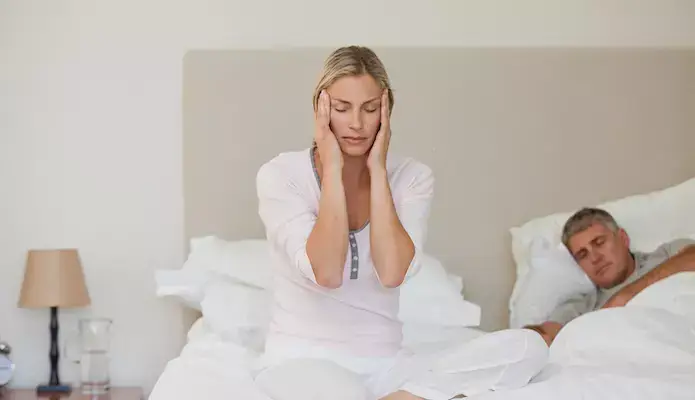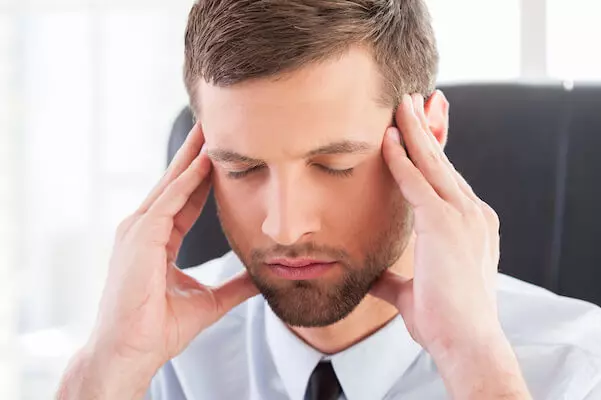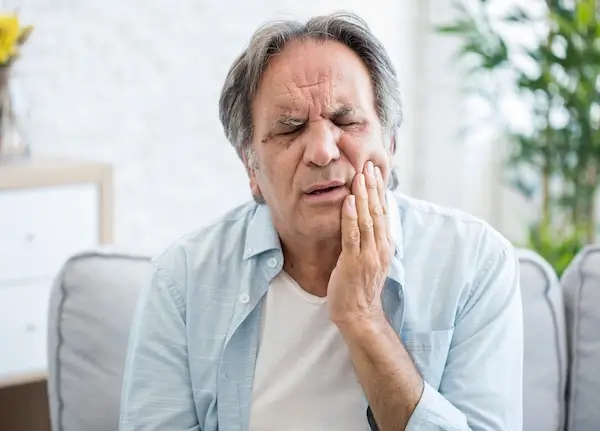Should I Wear A Nightguard?
Should I Wear A Nightguard?
 A nightguard is an oral device worn while sleeping to protect your teeth and jaw from clenching and grinding. Over time clenching and grinding can cause unnecessary wear on the teeth, sometimes leading to chips, cracks, and even tooth loss.
A nightguard is an oral device worn while sleeping to protect your teeth and jaw from clenching and grinding. Over time clenching and grinding can cause unnecessary wear on the teeth, sometimes leading to chips, cracks, and even tooth loss.
Night mouthguards are soft plastic and fit comfortably over your teeth. The nightguard absorbs force and friction from tooth grinding that can wear down the enamel and damage your teeth over time.
However, nightguards are not just for individuals who grind their teeth. Various conditions can benefit from wearing a nightguard. To see if a nightguard is right for you, call our sleep apnea specialist, Dr. Brian McDowell, for an evaluation and custom fitted oral appliance.
Snoring & Sleep Apnea
Nightly snoring is often a sign of obstructive sleep apnea (OSA), a medical condition in which breathing stops for short periods when sleeping, often up to 10 seconds. Short periods of stopped breathing during sleep can prevent your body from receiving adequate oxygen, which increases your risk of health issues like heart disease and stroke.
A nightguard for snoring and sleep apnea differs slightly from a custom mouthguard. Our highly trained dentist in Fitchburg, Dr. McDowell, designs each oral appliance for sleep apnea to keep the airway open by gently pushing the lower jaw and tongue forward. This gentle pushing helps prevent the soft tissue and tongue in the back of the throat from collapsing and blocking the airway.
Grinding Teeth At Night
Bruxism is the habitual grinding or clenching of teeth, which can cause wear and cause chips, cracks, or other damage. Bruxism may also lead to headaches, jaw pain, and tooth sensitivity. The cause of bruxism is unknown, but it may be correlated to anxiety, stress, or sleep disorders.
A nightguard protects your teeth from the wear and damage caused by grinding (bruxism) by absorbing the force and lessening tension and pain in the jaw muscles.
TMJ ~ Temporomandibular Joint Disorder
TMJ is a severe condition that affects an individual’s temporomandibular joint, which connects the lower jawbone to the skull. It can cause jaw, neck, and shoulder pain, making it difficult to open or close your mouth. TMJ affects between 5% and 12% of individuals. Fortunately, TMJ is very treatable, and a nightguard is an effective non-invasive way to manage the medical condition. A nightguard can relieve some of the symptoms of TMJ because it keeps the jaw relaxed, alleviating pain and reducing inflammation.
Protects Dental Veneers & Restorations
Veneers and other dental restorations are dental treatments used to improve the function and appearance of teeth and provide added strength and aesthetics. Veneers are thin porcelain shells that your cosmetic dentist cements to the front of your teeth. Restorations, like fillings and crowns, replace tooth structures lost due to tooth decay or damage.
Nightguards are recommended for people with dental veneers or other dental restorations, as these teeth are more susceptible to damage. A nightguard keeps the teeth in alignment, preventing them from grinding and causing chips or cracks. This protection can prolong the restoration’s lifespan.
Improve Sleep Quality At Brian C. McDowell, DDS
Visit Brian C. McDowell, DDS, for custom-made oral appliances to protect your teeth and improve your quality of sleep. Call us at 978-252-2049 to book an appointment and learn how an oral appliance can get you a better night of sleep!

 If you have ever woken up with a sore jaw, sensitive teeth, or a headache, you might have experienced bruxism. Bruxism, teeth grinding, is a condition where an individual grinds, gnashes, or clenches their teeth, typically unconsciously. Understanding the relation between
If you have ever woken up with a sore jaw, sensitive teeth, or a headache, you might have experienced bruxism. Bruxism, teeth grinding, is a condition where an individual grinds, gnashes, or clenches their teeth, typically unconsciously. Understanding the relation between  Everybody gets bad breath at times. But for people with chronic bad breath, it can indicate something more serious, like gum disease or a tooth infection. Brian C. McDowell, DDS can help treat the underlying causes of bad breath so you can enjoy fresh breath and a clean taste in your mouth.
If you are looking to treat chronic bad breath in Fitchburg, call our dentist, Dr. Brian McDowell at call
Everybody gets bad breath at times. But for people with chronic bad breath, it can indicate something more serious, like gum disease or a tooth infection. Brian C. McDowell, DDS can help treat the underlying causes of bad breath so you can enjoy fresh breath and a clean taste in your mouth.
If you are looking to treat chronic bad breath in Fitchburg, call our dentist, Dr. Brian McDowell at call  You or someone you know may snore while sleeping. You may find yourself wondering why your husband or wife snores so loud? While most people regard snoring as a natural bodily function, it could also indicate other health complications. Snoring is the first sleep apnea indicator, a condition that develops when your airway is blocked while sleeping. Unfortunately, your body and brain fail to receive the proper oxygen needed to restore your body and prepare for the next day. With advanced training and over 30 years of experience, patients trust the expertise of Dr. Brian McDowell for sleep apnea evaluation in the Fitchburg area.
You or someone you know may snore while sleeping. You may find yourself wondering why your husband or wife snores so loud? While most people regard snoring as a natural bodily function, it could also indicate other health complications. Snoring is the first sleep apnea indicator, a condition that develops when your airway is blocked while sleeping. Unfortunately, your body and brain fail to receive the proper oxygen needed to restore your body and prepare for the next day. With advanced training and over 30 years of experience, patients trust the expertise of Dr. Brian McDowell for sleep apnea evaluation in the Fitchburg area.
 These two dentistry topics may seem to have little to do with each other, but the truth is that TMD and dental implants are closely interconnected. Our dentist,
These two dentistry topics may seem to have little to do with each other, but the truth is that TMD and dental implants are closely interconnected. Our dentist,  You’re relaxing at home when you suddenly feel significant pain or discomfort in one of your teeth. Do you need to call the dentist immediately? Or can you wait for the pain to subside? Sometimes it can be hard to tell whether tooth pain is genuinely urgent, but if it is, you can’t wait too long to call your emergency dentist for help. So, here’s what you need to know to decide when your tooth pain or toothache is a
You’re relaxing at home when you suddenly feel significant pain or discomfort in one of your teeth. Do you need to call the dentist immediately? Or can you wait for the pain to subside? Sometimes it can be hard to tell whether tooth pain is genuinely urgent, but if it is, you can’t wait too long to call your emergency dentist for help. So, here’s what you need to know to decide when your tooth pain or toothache is a